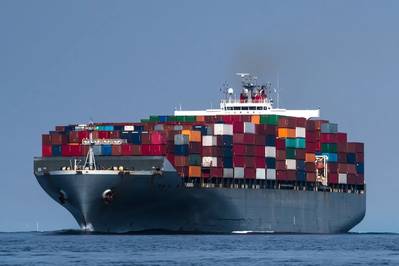The U.K.’s Energy Technologies Institute (ETI) has commissioned a £1.8 million ($2.5 million) project that aims to assist financiers to understand and quantify the benefits in investing in fuel efficient technologies for existing and future vessels.
The Vessel Technology Assessment System (VTAS) project, which will develop a practical approach to predict the benefit of a range of carbon abatement/fuel efficiency technologies on marine vessels over real-world usage cycles, will be led by BMT and delivered in partnership with Black & Veatch.
David Butler, Project Manager for HDV marine efficiency at the ETI, said, “Maritime transport emits around 1,000 million tonnes of CO2 annually and is responsible for about 3 percent of global greenhouse gas emissions. Furthermore, the International Maritime Organization states that emissions could rise by 50 to 250 percent by 2050 compared to 2011 levels. Therefore, the efficient use of fuel through the implementation of energy saving devices (ESDs) will be critical to the future affordability, security and sustainability of maritime transport.”
BMT, in partnership with Black & Veatch, will look to create independent, transparent and insightful information to engage and support stakeholders and decision makers who can positively influence commercial shipping to reduce fuel consumption. This will support and promote the drive to change the way in which the world’s shipping power and propulsion is designed and operated. The project will focus on characterizing and addressing perceived barriers to the adoption of ESDs, providing data driven technical models of individual ships and dovetailing this with the necessary financial modeling to help capture the CAPEX and operational issues accurately.
BMT and Black & Veatch will, during the course of the project, establish a presence in the commercial shipping market that will provide enduring support and continue to promote adoption of ESDs beyond the completion of the VTAS project.
John Buckingham at BMT explained, “There is a choice of ESDs within the commercial shipping market such as Flettner rotors, high efficiency propellers and wingsail technologies and yet, the uptake to date has been somewhat slow, due to the perceived technical and financial risks of implementing these technologies. Through improved ship-based modeling, assessments and data validation, this project will allow us to explore the options and provide independent evidence that stakeholders can trust to make an informed decision.”
Butler added, “We hope that this project will help to tackle the market barriers that currently exist which limit the uptake of cost-effective fuel efficiency technologies. Combining this project with our current £10m portfolio of demonstrations in the areas of Flettner rotor sails, high efficiency propulsion systems and new waste heat recovery technology, will help us reach our target of a 30 percent improvement in fuel efficiency for marine vessels.”











